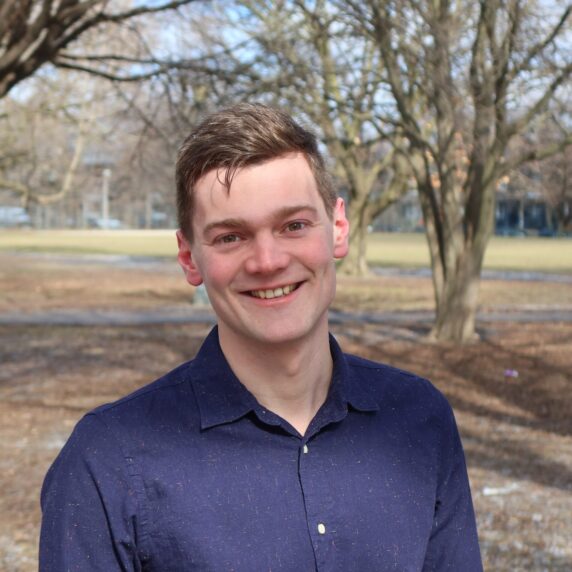


When you pay attention to seemingly unrelated situations – random occurrences – you may start to see similarities. Those similarities are at the heart of Duncan Dauvergne’s research – which garnered him a 2023 Sloan Fellowship.
“The specific problems that I study are motivated from phenomena in physics that have random elements,” says the University of Toronto Mississauga mathematician. He gives the example of spilling coffee on a piece of paper.
“You’ll see the coffee stain spread out on that piece of paper. And at the edge of that coffee stain, there’s this rough interface where the coffee is moving into the paper. You see phenomena like this appear in situations that are seemingly unrelated.”
Dr. Dauvergne has spent years modelling problems similar to the coffee stain, like the growth of crystals and wildfires.
“Another good example is if I put a colony of bacteria on a petri dish and then, over time, the bacteria will multiply and grow outwards. The outer edge of the colony looks remarkably similar to the outer edge of the coffee stain. Or snow falling on a windowsill; as more and more snow falls, you see the snow build up bit by bit on the windowsill and you see this rough interface. In all three of these situations, even though the phenomena are quite different, you see roughly the same behaviour. The interfaces look very similar.”
It’s an example of the philosophy of universality: that different phenomena that you see in different places produce very similar behaviour.
“I study specific mathematical models for these phenomena,” he says. “We model things with randomness, even though they are deterministic.”
Dr. Dauvergne says winning the Sloan Fellowship was a “very pleasant surprise.”
“The funds are very helpful in terms of building my research profile over the next three or four years. So pragmatically, it’s very helpful, but also as a career recognition, it’s really humbling and a true honour.”